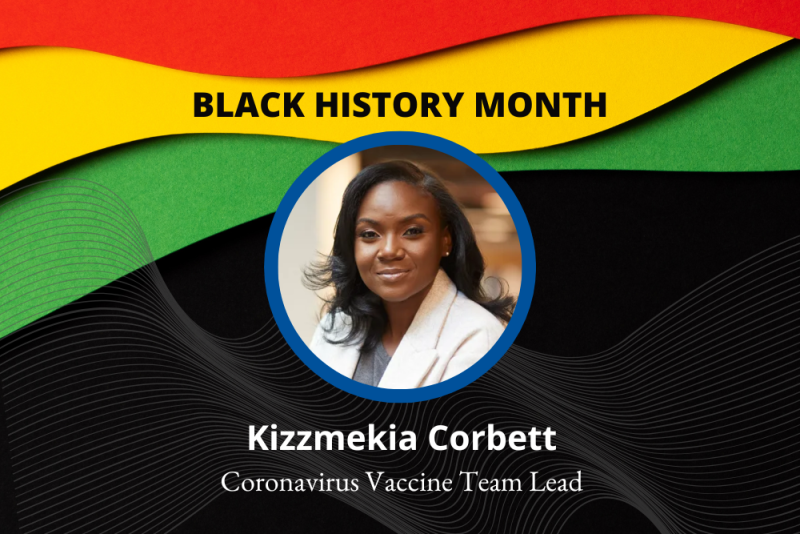
Dr. Kizzmekia Shanta Corbett-Helaire, an American viral immunologist, is the Shutzer Assistant Professor at the Harvard Radcliffe Institute. She was featured in Time magazine's "Time100 Next" list as an Innovator in February 2021, with a profile penned by Dr. Anthony Fauci.
Originally from North Carolina, Dr. Corbett-Helaire earned her PhD in microbiology and immunology from the University of North Carolina at Chapel Hill. During her doctoral research, she delved into studying the role of human antibodies in dengue virus pathogenesis, conducting her work in Sri Lanka.
Dr. Corbett-Helaire's pivotal contribution to combating the COVID-19 pandemic began when she recognized the similarity between the novel coronavirus and severe acute respiratory syndrome coronavirus. Leveraging her expertise, she and her team at the National Institute of Allergy and Infectious Diseases’ (NIAID) Vaccine Research Center swiftly initiated efforts to develop a vaccine. With her comprehensive understanding of coronaviruses and her leadership role within the center's Coronavirus Vaccines Team, Dr. Corbett played a vital role in the development of the Moderna vaccine.
Her groundbreaking research at the NIH focused on understanding coronavirus biology and vaccine development, leading to the discovery of a stabilized version of the spike protein as a crucial target for vaccines and treatments. The resulting Moderna mRNA vaccine, among others, has been instrumental in combating the pandemic. In her own lab Dr. Corbett expanded her focus beyond coronaviruses into broader viral immunology research with a focus on pandemic preparedness and universal vaccine development.
As a science communicator, Dr. Corbett-Helaire excels in explaining complex concepts to diverse audiences, serving as a prominent figure in public discourse on vaccines and viruses. She is actively engaged in outreach programs, aiming to inspire youth to pursue careers in science.
Reflecting on her experiences, Dr. Corbett-Helaire emphasizes the importance of diversity in science and the need for a supportive research environment to foster innovation. Her vision extends beyond her own achievements to the broader goal of advancing pandemic preparedness and scientific collaboration.
Dr. Corbett-Helaire's remarkable journey from her roots in North Carolina to her current position as a leading figure in viral immunology exemplifies the transformative impact of scientific expertise and dedication of Black immunologists.